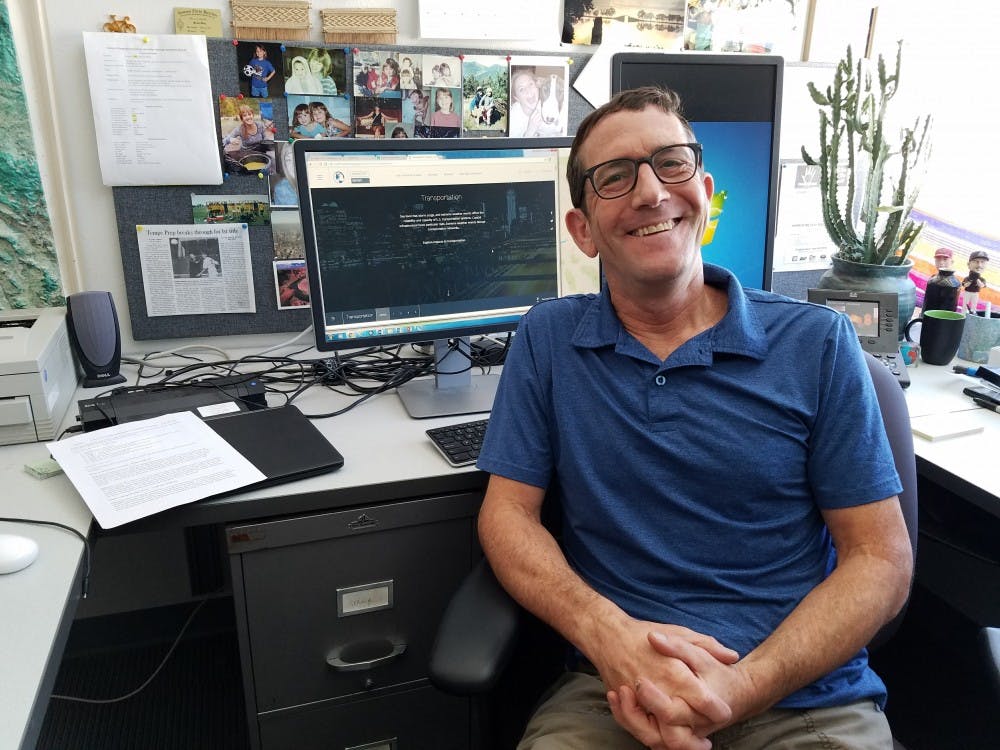ASU geographical science professors voiced concern on the future of climate change research following the dismissal of a federal climate change committee in August.
The Advisory Committee was a close partner to the National Climate Assessment, a federal climate change research program.
The Assessment collected data, presented climate change predictions and created strategies to combat and prepare for climate change, while the Advisory Committee worked to translate that data into real-world solutions.
Michael Kuby, an ASU geographical sciences professor, was a lead author on the Assessment's most recent report. He said that without the committee, the Assessment will be less effective and could be shut down in the future.
“This might be the beginning of undermining the whole National Climate Assessment process,” Kuby said. “A lot of people are looking at this as being the first salvo against the federal government efforts to study climate change.”
Kuby also emphasized the importance of the Assessment reports in this ever-changing climate.
“What I find especially important about the National Climate Assessment is that it has all of these chapters on the sectors of the economy and society," Kuby said. "And it shows how climate change is impacting water, energy, agriculture and transportation, and that’s really essential information.”
David Sailor, also an ASU geographical sciences professor and director of ASU's Urban Climate Research Center, said expertise should be the foundation of environmental policy.
“Any time that policy focused on the environment is not driven by solid expertise on environmental science, it’s disheartening and concerning,” Sailor said.
Sailor contributed to a chapter about the Gulf Coast in an early version of the climate assessment published in 2001.
Maria Carmen Lemos, an associate dean of research at the University of Michigan, was a member on the terminated advisory committee and said there was a lack of communication as the committee's renewal date approached.
"We didn't hear anything, there was nothing official.” Lemos said. “We were working under the assumption that it would be renewed.”
Lemos also voiced her disappointment about the committee’s dismissal.
“My personal opinion is that it’s a missed opportunity to make the National Assessment more effectively used,” Lemos said.
Stuart Luther, an ASU alumnus and former student assistant to the U.S Global Change Research Program, which oversees the Climate Change Assessment, said he didn't know why the committee would be terminated.
“It seems to me that there’s not a reason that you wouldn’t want an advisory committee for that assessment since it is what congress is supposed to look at as the standard and the real scientific research that’s going on,” Luther said.
The committee was operated under the umbrella of the National Oceanic and Atmospheric Administration. Julie Roberts, the administration's communications director, said in an email that the committee expired because it had reached the end of a two-year term and wasn't renewed.
Roberts said the administration was dealing with Hurricane Harvey and was not available to expand on why the committee was not renewed.
The National Climate Assessment is expected to release their fourth report on climate change in 2018 despite the lack of an advisory committee; however, according to the committee website, members were working on a list of recommendations to improve the assessment process due in September that will now go uncompleted.
Correction: Michael Kuby and David Sailor's area of study was misidentified. The article has been updated to reflect the changes.
Reach the reporter at cscragg@asu.edu or follow @monsoonchaser on Twitter.
Like The State Press on Facebook and follow @statepress on Twitter.




